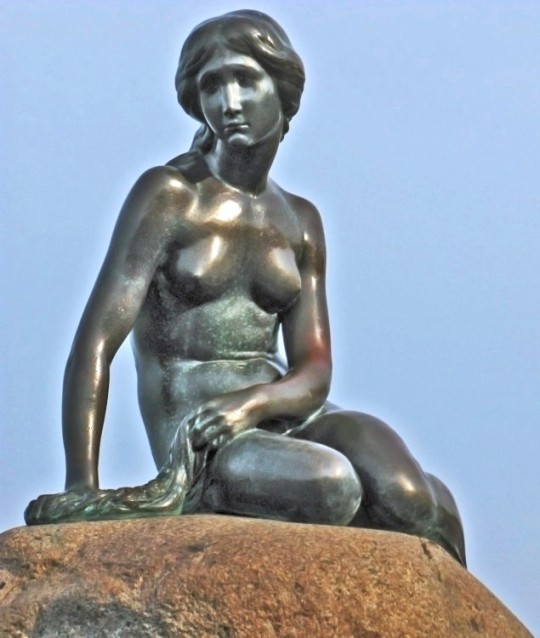#Den lille havfrue
Text
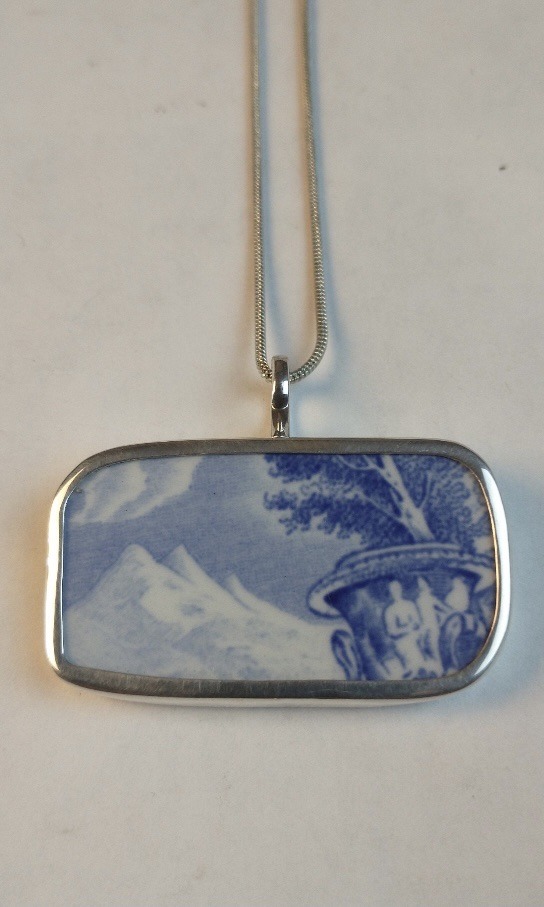

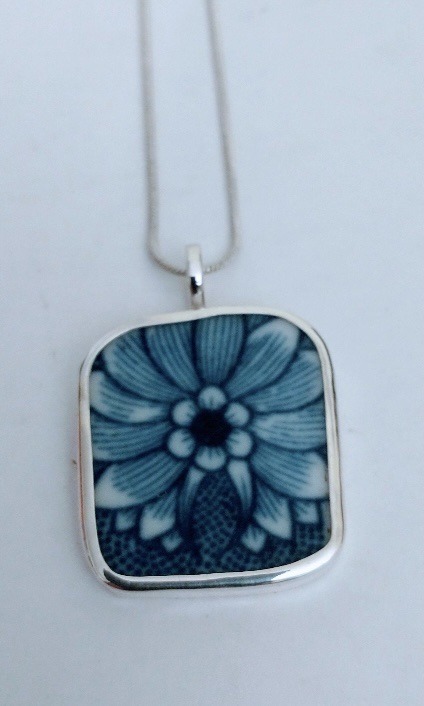


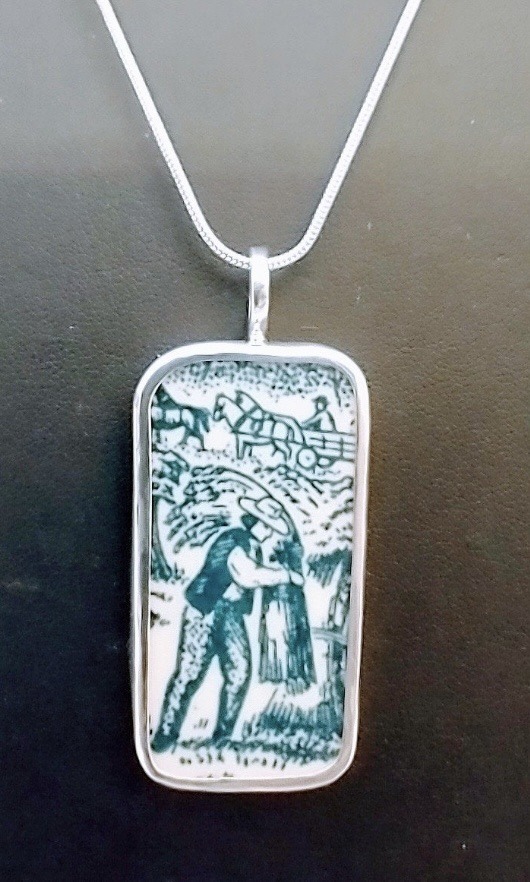
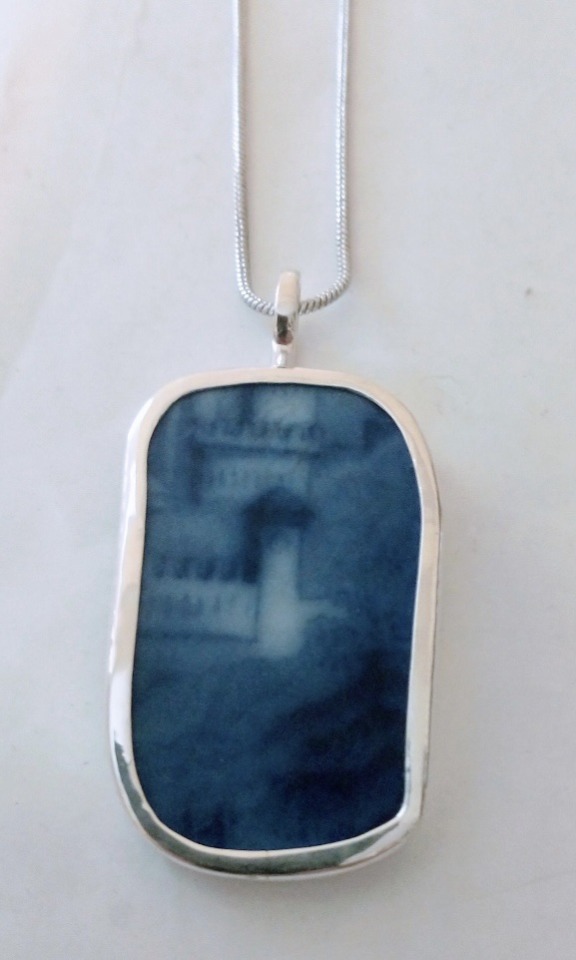

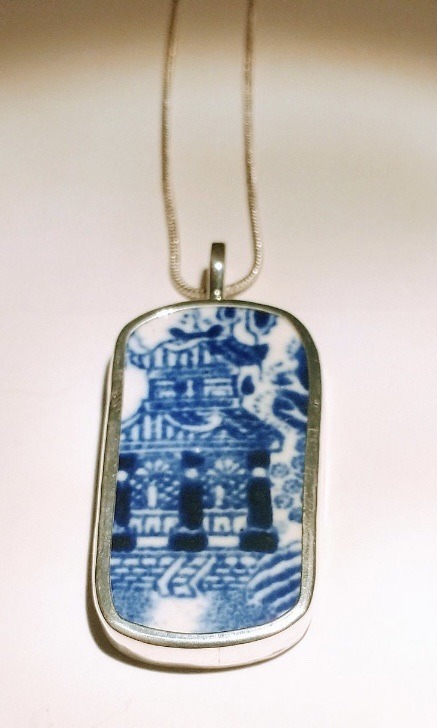
Pendants made from broken china by MaroonedJewelry.
#repurposed#china#porcelain#ceramics#jewelry#pendant#1k#den lille havfrue#someone in tags said the first reminds them of a rearview mirror!!! you’re so right
11K notes
·
View notes
Photo
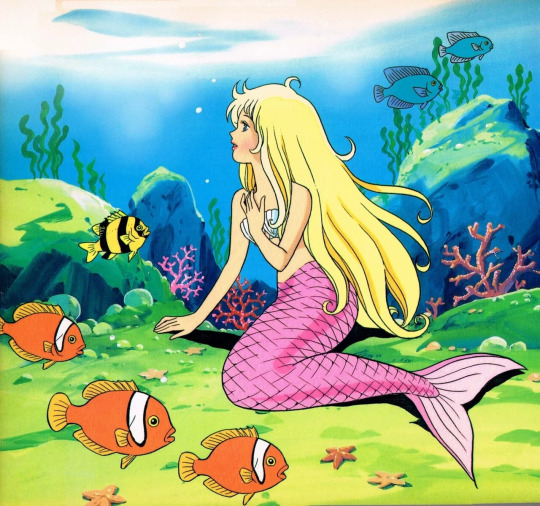

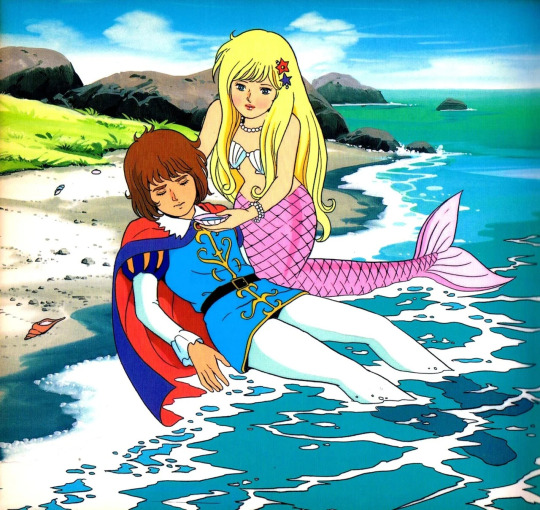

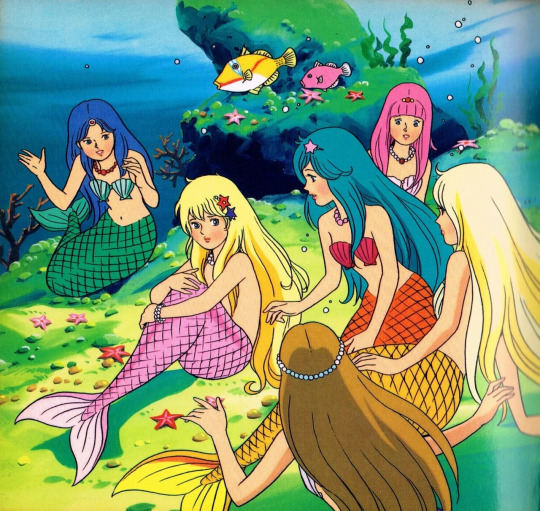
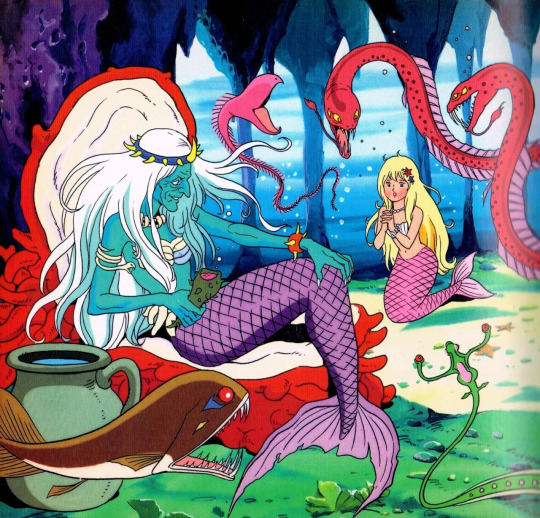
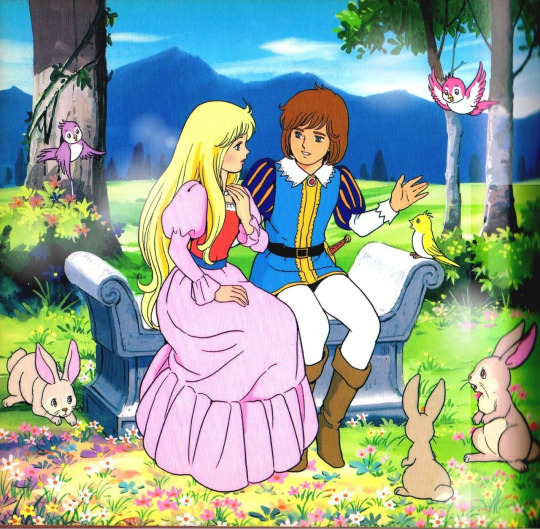


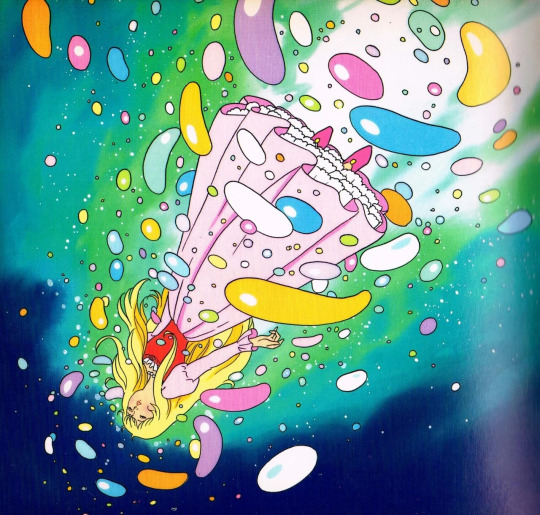

The Little Mermaid illustrated by Shogo Hirata
Source: [X]
254 notes
·
View notes
Text
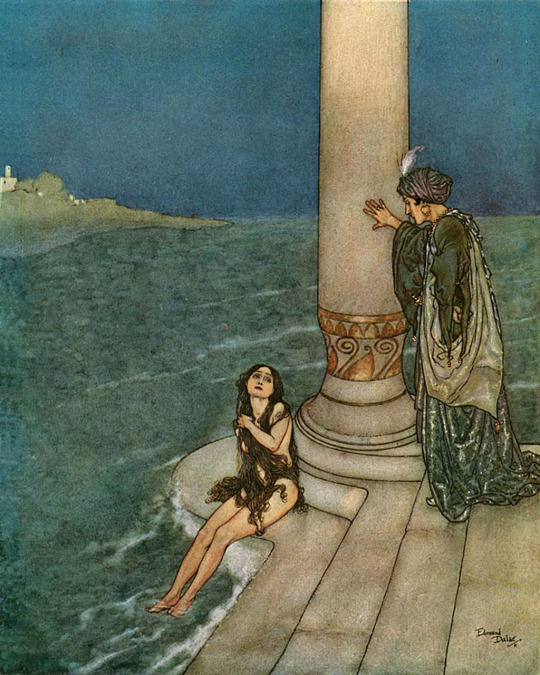
*Originally published in Danish as "Den lille havfrue"; sometimes translated as "The Little Sea Maid"
"The Little Mermaid" is available to read here
#short stories#short story#the little mermaid#den lille havfrue#the little sea maid#hans christian andersen#19th century literature#danish literature#danish language literature#links to text
36 notes
·
View notes
Text

Den lille Havfrue
København, 2008
shop | flickr
#photography#black and white#original photographers#photographers on tumblr#lensblr#mood#store#vintage#Copenhagen#København#Denmark#Danmark#classic#Europe#danish#art#fairytale#Den lille Havfrue#Edvard Eriksen#sculpture#Hans Christian Andersen#nordic
53 notes
·
View notes
Text
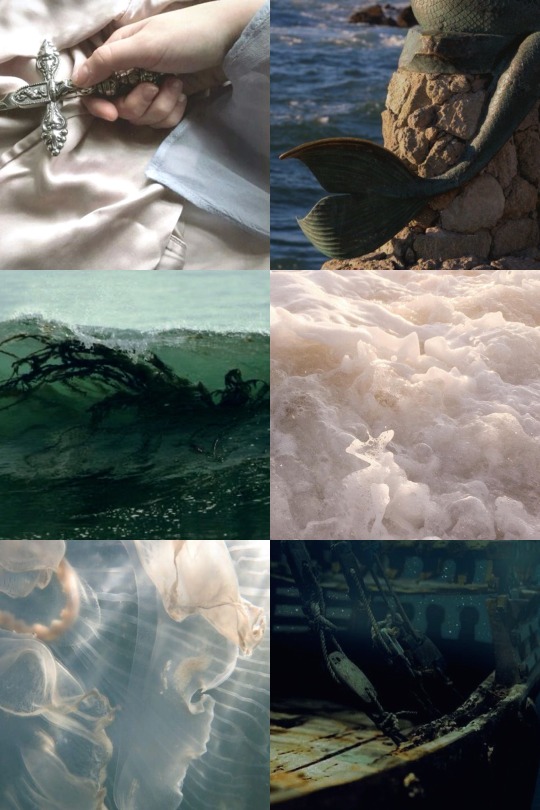
"The Little Mermaid", by Hans Christian Andersen.
"'Why have not we an immortal soul?' asked the little mermaid mournfully; 'I would give gladly all the hundreds of years that I have to live, to be a human being only for one day, and to have the hope of knowing the happiness of that glorious world above the stars.'", from The Little Mermaid.
"She was in his thoughts, and the knife trembled in the hand of the little mermaid: then she flung it far away from her into the waves; the water turned red where it fell, and the drops that spurted up looked like blood. She cast one more lingering, half-fainting glance at the prince, and she threw herself from the ship into the sea, and thought her body was dissolving into foam.", from The Little Mermaid.
#the little mermaid#hans christian andersen#fairy tales#den lille havfrue#fairytale#folk tales#reading#moodboard
9 notes
·
View notes
Text

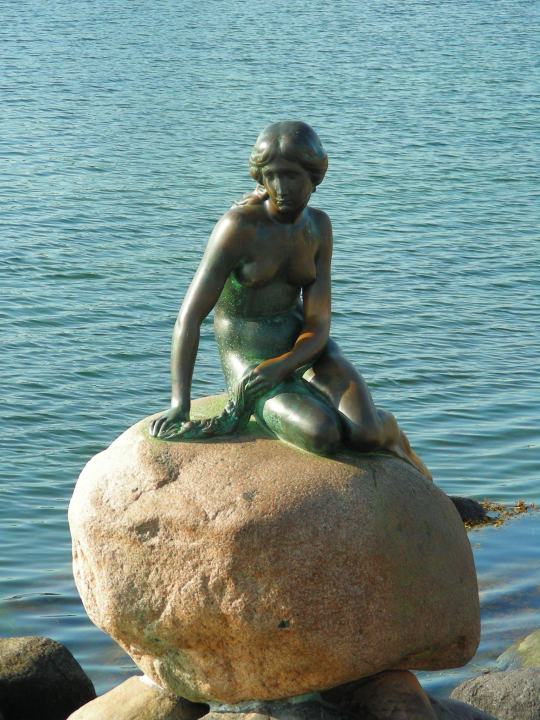



The Little Mermaid by Edvard Eriksen was unveiled on August 23, 1913.
#Little Mermaid by Edvard Eriksen#Den lille Havfrue#unveiled#23 August 1913#110th anniversary#small but cute#travel#original photography#vacation#tourist attraction#landmark#cityscape#Denmark#summer 2006#Danish history#Copenhagen#København#fairy tale#Langelinie#Øresund#Northern Europe#Atlantic Ocen
14 notes
·
View notes
Text

Den Lille Havfrue.
3 notes
·
View notes
Text
This was the last evening that she should breathe the same air with him or gaze on the starry sky and the deep sea. An eternal night, without a thought or a dream, awaited her.
2 notes
·
View notes
Text





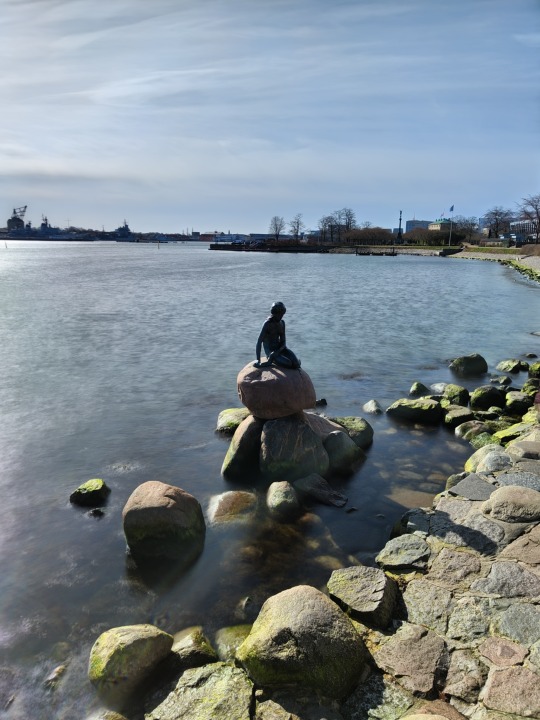

Kopenhag Güncesi 229. Gün, 29 Mart 2024.
Happy Easter!
Bu hafta Easter tatili için gezi planlarım vardı. Danimarka'nın diğer şehirlerini gezecektim. Ama hem iş hem sağlık durumu el vermedi. onun yerine Kopenhag'ın kıştan bahara geçişini gözlemlemek için bildiğim yerleri tekrar turladım. Nyhavn, Amalienborg, The Little Mermaid.
Evet kış bitiyor nihayet. Çok sert olmasa da benim için yeterince zor bir kış oldu. Bitmek bilmeyen grip nezle durumları çok zorladı. Şimdi 4 gözle baharı bekliyorum.
0 notes
Text
The Wonderful World of Disney The Little Mermaid Live!
A decade ago they announced that disney’s remake of disney’s cartoon will have a tanned actress as its lead. First i though that it can be cool, pity that they will surely ruin it like always. And i though that this release is that, up until the new one came out. And the tanned girl had a white-ass daddy and a white-ass prince.
After some research i discovered that this is a musical, as in a live…

View On WordPress
#Den lille havfrue#The Little Mermaid (1989)#The Wonderful World of Disney The Little Mermaid Live!#Video
0 notes
Photo
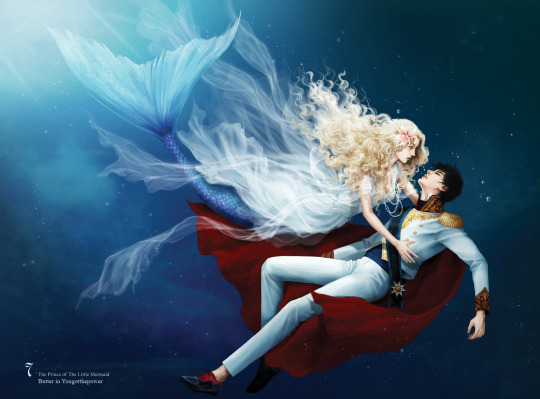
“The Prince of the Little Mermaid” by Butter in Yougotthepower
24 notes
·
View notes
Video
Den Lille Havfrue ~ 9734 by @Wrightbesideyou
Via Flickr:
Den Lille Havfrue København 14.08.2019 16:28 CEST 24mm 1/3200 sec f/2.8 ISO 110 www.visitcopenhagen.com/copenhagen/little-mermaid-gdk586951
#07904610415#@Wrightbesideyou#Art#Artist#Capital Region of Denmark#Copenhagen#Cunard Cruise 11-25.08.2019#D750#Danmark#Den Lille Havfrue#Denmark#Edvard Eriksen#Europe#København#Nikon#Nikon D750#Nordic countries#Region Hovedstaden#Scandinavia#The Little Memaid#Wrightbesideyou Photography#[email protected]#www.wrightbesideyou.com#flickr
0 notes
Text
Sunday 10 November 2002 - crossing the Øresund to Sweden - a SE pölse is also a DK pølse - Little Mermaid statue is actually little
10 November 2002
EN Hi everyone. Twenty years ago today, I visited Sweden for the first time. Then I also went back to Copenhagen to see the Little Mermaid statue near the Osterport S-Tog rail station. It was at 4 PM just after the sun had set. Then it was time to enjoy some Carlsberg beer.
DE Hallo allerseits. Heute vor 20 Jahren war ich zum ersten Mal in Schweden. Dann ging ich auch zurück nach Kopenhagen, um die Statue der kleinen Meerjungfrau in der Nähe des S-Tog-Bahnhofs Østerport zu sehen. Es war um 16 Uhr, kurz nachdem die Sonne untergegangen war. Dann war es Zeit, ein Carlsberg-Bier zu genießen.
DK Hej allesammen. For tyve år siden i dag besøgte jeg Sverige for første gang. Så tog jeg også tilbage til København for at se Den Lille Havfrue-statuen ved Østerport S-Tog banegården. Det var klokken 16 lige efter solen var gået ned. Så var det tid til at nyde lidt Carlsberg-øl.
SE Hej allihopa. För tjugo år sedan idag besökte jag Sverige för första gången. Sedan åkte jag också tillbaka till Köpenhamn för att se den lilla sjöjungfrun nära järnvägsstationen Østerport S-Tog. Det var vid 16.00 precis efter att solen hade gått ner. Sedan var det dags att njuta av lite Carlsberg-öl.
FR Salut tout le monde. Il y a vingt ans aujourd'hui, je visitais la Suède pour la première fois. Ensuite, je suis également retourné à Copenhague pour voir la statue de la Petite Sirène près de la gare Østerport S-Tog. C'était à 16 heures juste après le coucher du soleil. Ensuite, il était temps de déguster une bière Carlsberg.
Guten Morgen! Good morning! God morgen! God morgon! (Editor's note: although in Swedish "morgon" is pronounced almost like "moron", the meanings are very different). Sunday the 10th November 2002 would be the day that I would visit Sweden for the first time. In July and August 1990, I had already visited Helsinki, Finland, as I was on a youth tour group in the then-USSR. I did not spend much time in Helsinki, maybe three days in total. This time I would be on my own, and it would be at my own pace.
I woke up about 6 AM. It was still very dark. Breakfast would not be served until 7 AM at the hostel. I did not know the schedule for the trains to Malmö, so I planned to leave about 8 AM, walk to the Bella Center metro station, take the M1 to Ørestad and transfer to the local train to Malmö Central. I took a shower, then went to the breakfast room. I think I had to pay around 70 Kroner for breakfast. The breakfast was very good, it even had a cheese slicer that I could slice cheese - if I remember, it was havarti, similar in appearance to Swiss - by turning a crank. There was a good selection of rye crackers to put on cheese. Also there was a good selection of yogurts. Also there were hard boiled eggs, cold cuts, and coffee and orange juice.
After breakfast, I walked to Bella Center metro station. The trains were running on schedule. I took the M1 south just to Ørestad and transferred to the DSB local train to Malmö C. The train that arrived looked similar to the IC3 that I rode, but it was an electric train. I had a seat in the second class, as my ticket was for that class, between Kastrup Airport and Malmö, the multi-day pass was for the entire Copenhagen region. The train went underground for two stations, namely Tårnby and the airport. It stayed underground for a while until five minutes later when it emerged as crossing the Øresund. About 9 AM, the train crossed the border between Denmark and Sweden. There were no passport checks on the train at all. The train made a stop at Malmö Lernacken. About 9:20 AM, the train ended at Malmö Central, at the then-head station. The train passed by an Ikea store, before going north and west to the central station. The station has since built an underground through station.
When I arrived in Malmö, I wanted to see the Malmöhus Slott. It was a castle close to the rail station. I had to walk along the Neptunigatan, then Gibraltargatan, and Malmöhusvägen. Along the way I found a funny bicycle crossing sign, which was a cyclist with a big joint in his mouth, probably something he (discreetly) bought in Christiania. I went back to the station to find a bus to downtown. I passed by the "Knotted Gun" memorial to nonviolence. The time would have been 10:15 AM or so. I boarded a bus for downtown at Malmö C, but they did not have a day pass available, so I took a single journey to about the Rörsjökanalen. I noticed the Jensens Bøfhus, along Södra Förstadsgatan, which was a steakhouse. It had a big herefordshire bull on its sign. About Föreningsgatan is the central business district in Malmö. It is nice to walk along on a Sunday morning, and also to do some window shopping. H&M is based in Sweden, and in Malmö, the stores would open about 12 PM. Until then, there were a few statues to take note of in the CBD. About 12 PM there was a CD shop that opened, and I went inside to look at some Swedish music. I saw a few CDs by Blacknuss, and one by Meja who did "All about the money" and "Private Emotion" with Ricky Martin a few years earlier. I thought about buying the CDs but I saw the prices, about US $ 30 for an average CD. Seemed a bit too much.
In Sweden, the Krona is used, as opposed to the Euro. The Krona is about the same exchange rate as the Danish Krone. In 2002, the 50 öre coin was used, but this has since gone out of use. The 20 Krona banknote is quite common, worth around US $3.
I walked around Malmö a bit, had maybe a pölse or two, and about 2:30 PM I decided to return to Copenhagen. The Swedish name for Copenhagen was Köpenhamn, pronounced as "Schöpenhamn". The Swedish letter K has an interesting consonant property, it tends to be pronounced as "Sh". Also, Hammarskjöld is pronounced in German as "Hammarchöld". I wished that I could have spent more time in Malmö.
I boarded the train for Copenhagen about 2:45 PM. It would not arrive in Copenhagen until about 3:30 PM about the time that the sun would set. At København H, I transferred from the train to an S-Tog, and I rode it until Østerport. Then I walked along the northwest side of the Kastellet fortification just east of Østerport station, then southeast at Langelinie, and was able to find the Den Lille Havfrue statue. It is not very large, it is maybe a meter high, as the Havfrue is sitting on a rock. As the sun had already set, I was able to take a flash photo, and it looks like it is shiny bronze with a darkening background. It would have been 4:30 PM when I took the photo.
I walked back to Østerport, took the S-Tog back to København H, and double checked the time of departure, which would be 9:30 AM to Hamburg Hbf. I would have about a seven hour layover in Hamburg anyway, until the train to Zürich would depart. I was hungry and wanted to find some place to eat. Somehow I found a pizza place that had a buffet. Their featured beer was Carlsberg "vøres øl".
After supper, I walked around the Radhuset area and caught the metro back to the hostel at Christianshavn. I went back to the hostel and went to sleep.
Please join me tomorrow, when I take the ride from Copenhagen, to Hamburg, then to Zürich, via Bremen and Baden AG.
Good night! Gute Nacht! Godnat! Godnatt!
#Copenhagen#Ørestad#Øresund#Sweden#Malmö#kronor#IKEA#Malmöhus Slutt#Knotted Gun#Non Violence#Rörsjökanalen#Blacknuss#Meja#Köpenhamn#København#pölse#pølse#Den Lille Havfrue#Little Mermaid#Østerport
0 notes
Text



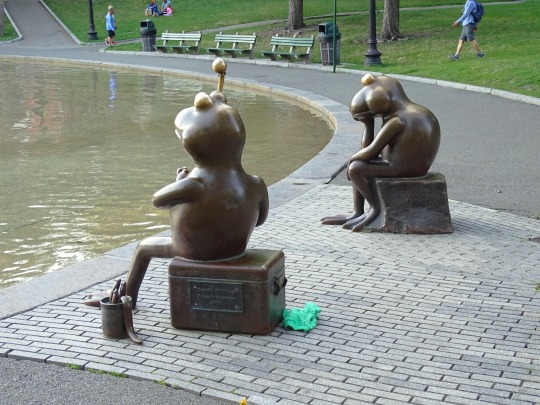
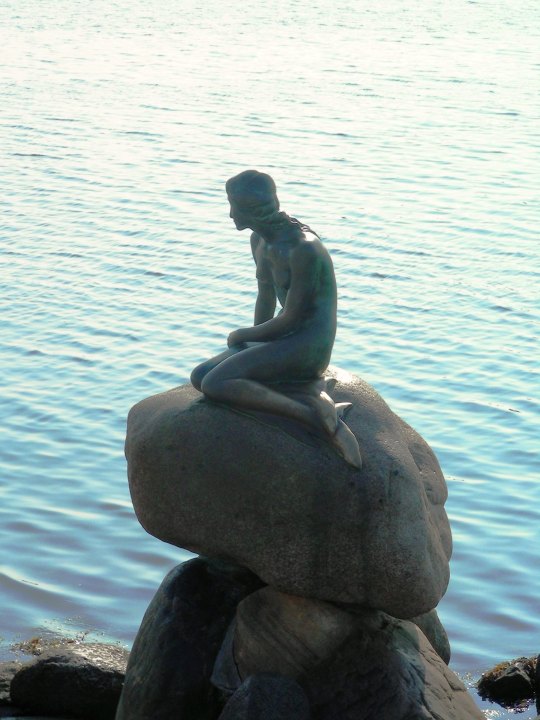

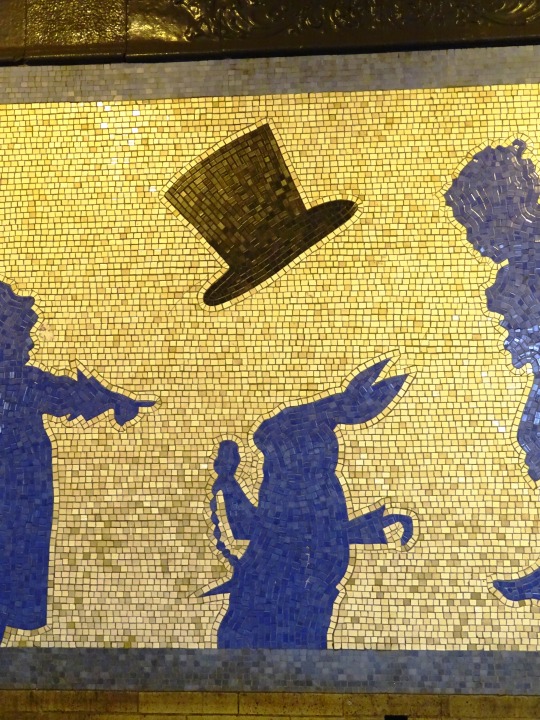
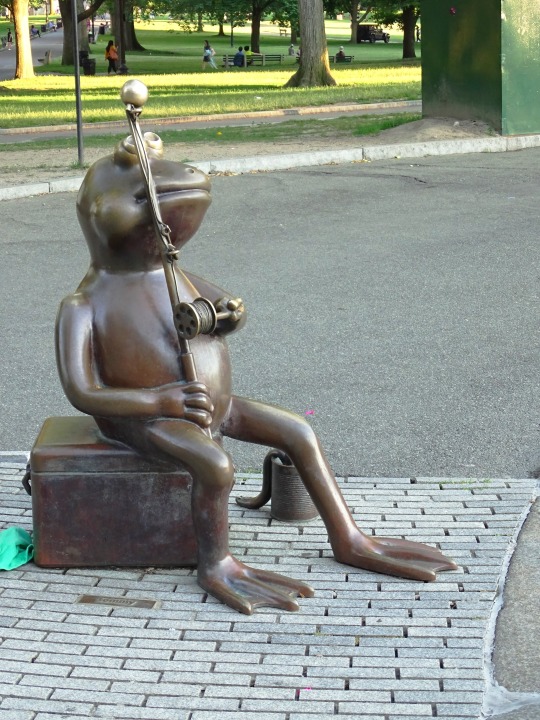




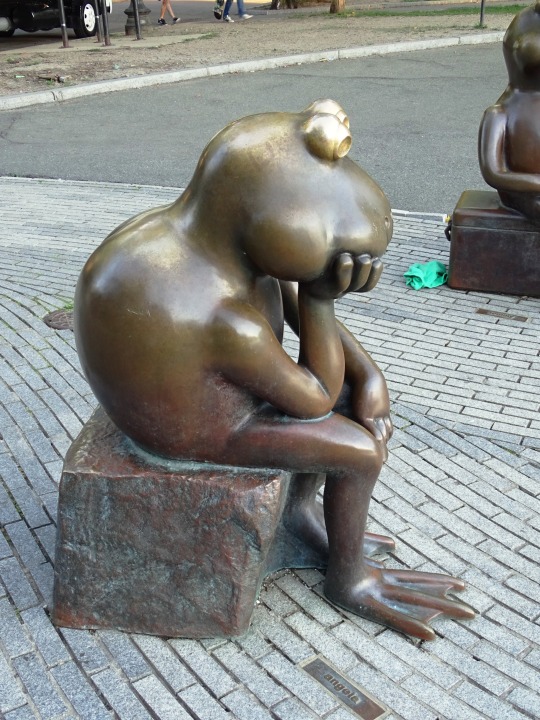

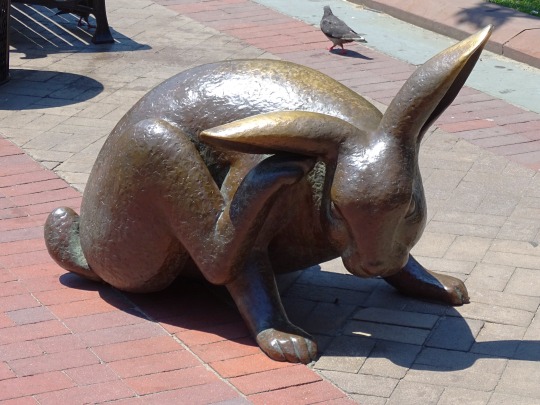
National Tell a Fairy Tale Day
Gather round the fire, and make yourselves comfortable… Tell A Fairy Tale Day is all about exploring myths and stories, old and new. From grim(m) tales to urban legends, tap the dark corners of your subconscious and see what you find…
History of Tell A Fairy Tale Day
The sharing of magical, otherworldly stories is a tale as old as time. While the term ‘fairy tale’ was coined in 1697 by Madame d’Aulnoy (conte de fées in her native French), it’s likely that some fairy tales originated as early as the bronze age over 6,000 years ago. And for most of history, fairy tales have been passed on not in written form but via the oral tradition, with each generation telling and dramatizing stories to the next.
The fairy tale’s ancient roots can be traced all over the world, from Vikram-Betaal in India and Aesop’s Fables in Ancient Greece to Arabian Nights in the Middle East. It was during the late 17th to 19th centuries that fairy tale collectors emerged, most famously Charles Perrault and the Brothers Grimm. While the Brothers Grimm aimed to preserve folktales in their pure form, documenting them in the way they were told by rural peasants unable to read or write, Perrault and others reworked fairy tales for literary and artistic effect, with some writers such as Hans Christian Andersen dreaming up their own new stories.
As the fairy tale’s history emerges into the modern day, it’s clear that the genre is still as popular as ever – look no further than the success of Disney movies to see how these stories continue to capture our hearts and imaginations. In fact, the famous Disney castle is inspired by Neuschwanstein Castle in Germany, built by none other than the Märchenkönig (fairy-tale king), Ludwig II of Bavaria, himself. Perched on a rocky hill and with horse-drawn carriage rides up to the front door, Neuschwanstein and its elaborate interior abound in myths and legends – the castle is even home to an artificial grotto!
By celebrating Tell A Fairy Tale Day, you’ll be continuing the magical tradition that has ensured fairy tales are still very much part of our lives to this day.
How fairy tales change over time
Perhaps one of the most interesting aspects of fairy tales is how they change over time. Simple plot structures, motifs and archetypal characters recurring across many cultures make these stories rife for adaptation and reinterpretation.
Although nowadays we usually associate fairy tales with children’s literature, you may be surprised to learn that many of today’s beloved stories have rather dark and disturbing origins. Imagine a world in which no woodcutter comes to save Little Red Riding Hood from the wolf’s belly, or in which one of the ugly stepsisters cuts off her own toes so that her foot fits in the slipper! From the 18th century onwards, many fairy tales were toned down and reworked so that they were more suitable for children.
These stories and the genre itself have also been adapted and reinvented for different time periods and cultures. Alongside original modern-day fairy tales, there are also various retellings, for example in urban settings or different countries. One particularly common type of retelling comes from women writers. Authors such as Angela Carter and Margaret Atwood have taken what are often seen as outdated tropes about women and reinvented them – the damsel in distress becomes the plucky heroine, and the trapped bride leaves her ogre husband for her happily ever after.
Why fairy tales are important
As it is often claimed Albert Einstein once said, “If you want your children to be intelligent, read them fairy tales. If you want them to be more intelligent, read them more fairy tales.” We might not expect such high praise for fairy tales from a world-famous theoretical physicist, but Einstein recognized the importance of the imagination. Fairy tales are incredibly valuable for both children and adults when it comes to learning about the world in which we live and developing our capacity for creativity. Fairy tales have also been considered fertile ground by psychoanalysts. With their twists and turns, age-old themes and familiar characters, our favorite stories may reveal not only the workings of our personal subconscious but also the fundamental elements of our collective psyche.
How to celebrate Tell A Fairy Tale Day
It should be clear by now that, when it comes to celebrating Tell A Fairy Tale Day, you really can let your imagination run wild! And while it’s a day that kids will love, it’s also a great occasion for adults too.
Gather your friends and family and take it in turns to share your favorite stories with one another. Time to brush up on your acting skills, as the more dramatic enactments the better – whether you’re good at impersonating a wicked witch or excel at acting out the characters’ quest through the enchanted forest, you’ll want to really make the tale come to life for your audience. And why not sit around a bonfire toasting marshmallows or string up some fairy lights in your living room to add to the atmosphere?
Alongside sharing the stories we know and love, fairy tales are the perfect genre for getting creative and honing your writing skills. Take a well-known story and tweak it to fit a different time or setting, or have a crack at inventing your own. It may well start with ‘Once upon a time’, but it’s completely up to you whether there’s a ‘Happily ever after’! Many libraries and literary organizations will also share stories and creative resources and even hold events to help mark the occasion.
If writing’s not your thing, then there are plenty of films and programs based on fairy tales for you to enjoy. Disney’s Snow White and the Seven Dwarves, Cinderella and The Little Mermaid are just some examples of the media giant’s adaptations, while movies and TV series such as Into the Woods and Tell Me a Story interweave and retell various classic fairy tales for new audiences.
And if you feel like going all out, why not host a fairy tale themed party? Encourage your guests to come in fancy dress, put on an enchanted feast of yummy snacks such as gingerbread houses and toadstool cupcakes, and throw some legendary party games like hunt the pea and castle building.
However you choose to celebrate Tell A Fairy Tale Day, it’s sure to be a magical occasion!
Source
#Hans Christian Andersen Statue by Georg John Lober#Central Park#Manhattan#Little Mermaid by Edvard Eriksen#New York City#Copenhagen#København#Denmark#summer 2006#public art#Den lille Havfrue#Tell a Fairy Tale Day#NationalTellAFairyTaleDay#26 February#Alice The Way Out by Liliana Porter#mosaic#MTA New York City Transit#Alice in Wonderland#Boston Common#Frogs at Tadpole Playground by David Phillips#Boston#original photography#travel#vacation#tourist attraction#landmark#USA#Tortoise and Hare by Nancy Schön
5 notes
·
View notes
Text
SUNDO. jade leech
This is the beginning: you walk into Osaka Bay, sound asleep.
This is the end: you are dragged into Osaka Bay, wide awake … and screaming.
tags: japanese mythology & folklore, religious imagery & symbolism, yokai AU, attempted rape/non-con, inspired by Den lille Havfrue by Hans Christian Andersen, sleepwalking, yandere, blood and gore, immortality, declaration of love, did andersen want to fuck fish? i think so!
word count: 9,114
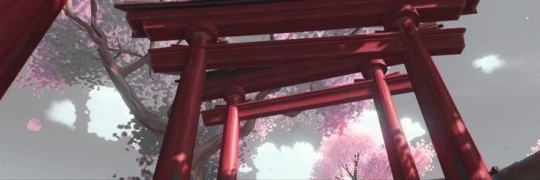
Timid, you step into the water.
Behind closed eyelids, the muscle and nerves of your eyeball flicker like insect wings. Your eyelashes may rest delicate in the closed oyster position but your eyeballs move alert underneath the thin skin.
By closing your eyes, it allows you to see a new world. Sight often blocks and trumps other sensations. With purpose, you narrow yourself to reflect upon the touch of a breeze, the sound of cicadas, and the shape of water embracing your ankles. You spread yourself out, imaging yourself in the wind, and then your eyes pulse under your eyelid skin.
You fly deeper into the lake with a yell of, “I see you!” And suddenly, you shrink down to the size of a six year old child from your adult body, missing your top left canine tooth and wearing a kimono pattern with abstract art of yellow squares and violet rectangles.
In the water, a boy laughs and says, “That can’t be true!”
“Yes it is!”
“But your eyes are closed!”
Eager hands squirm and dive through the water. Fingers reach out like hawk talons, squeezing unsqueezable water. In your hark of the earth, you hear the fierce splashes of you punching into the water to grab your friend. Laughing, you trip over yourself, falling breast first in water, managing to pick yourself up in time just as the lake licks at your throat. Three different voices laugh at you but you only hunt for one.
“I swear, I see you!”
“No way!”
In your attentiveness of your surroundings, you feel the smile that grows on your face. Water leaps up at your cheeks like sparks of a fire. When you laugh, salt slips in your mouth. Suddenly, you change angles and reach to your right instead of your left. The water there moves in a panic. Laughing, you bring up both your hands, readying to push them into the water.
The sun is warm. The water is cool. From the tree, in the breeze, thousands of leaves say in one voice, “My little Muyūbyō. My little sleepwalker. You are going too deep.”
“Mom?”
The hanging leaves are green and lush. “You’re going too deep, (Name).”
You wake up. The rainbow of ways one can wake up is endless and numerous. However, no one really considers waking up to be a varying, changeable state of things. Each unique rise into the waking realm differs slightly.
Today, you wake up like a crab has pinched firmly the tendon running down your upper hamstring. Today, you wake up shin-deep in the lake. Your mother is right. You are going too deep. The water usually stays up to your ankles. The sight greatly disturbs you and your hamstring tendon drums with the full body pain.
That boy. You wonder on the identity of that young boy. Why could you not catch him if you had him right in your sight? Your seeing varies often; sometimes the world is as clear as newly polished glass and other times you are trying to look through a looking glass that is grime and sand stained. His voice – his voice was almost as familiar as your mother's warning.
Eyes enucleated, you would always know your mother’s voice.
Backpedaling, you move and watch until the embrace around your legs slides down goosebumped skin and lies quivering around your ankles.
You look at the sunrise peering over the lake. Hinode starts the upward ascend, pink and orange light falling over the world. Water almost shimmers around your ankles with the welcome benevolence of the rising sun.
Yet with its welcome comes the banishment of the only company you have. Well, for the most part. Even the mischievous kappa, river spirits, will vanish with the sun. You look for them nonetheless, knowing you make sure to fall asleep with cucumbers in your nightwear; food for the yokai, just to certain their volatile hungers are quelled.
You —
You have always been able to see yokai.
Your parents have called you blessed because of it. As a sleepwalker, you are closer to the spirit world than the normal, spirit-blind citizens of the island Kyushu. Despite being blessed, your parents kept your habit of sleepwalking out of the village’s hippocampus — as they would surely see it as a mark of possession.
So much for parental precaution, you are already seen as the village’s resident boogeyman even without them knowing you move in nightly rest.
Perhaps it is a fault of your own.
Perhaps the blame lies on your parents.
You can pinpoint where it went wrong though. Since the incident, you have known you would be kindred to the boogeyman. Despite all the piling up evidence, there is no clearly given perpetrator. Who does the blame of the crime go to for being a boogeyman against one’s will? The crime of that day and then the crime of being yourself. You: eldritch evil in human clothings.
Sekia (the walking world) and ikai (the ‘other’ world), you walk between those and that is a crime.
You would never point the fingers at your God though. The very thought of it makes your stomach tighten like rope and you press your palms flat into your abdomen to resist the urge to puke. God, your last remaining parent.
Shinto is an indigenous faith in Japan but you are born of a time period far too back to even toy with the idea of calling it indigenous. Shinto believes that one is born fundamentally good but struggles with evil spirits. You are born with a mark of evil. Born bad, you defy the religion you preach, practice, and love as if it is an old friend.
Despite that, where you live is in a Shinto shrine, atop a mountain, by a lake.
And, with a frown blemishing your pretty face, you look behind, up at the mountain you have to climb to go home.
Behind the Shinto shrine is a clothesline for drying cottons and silks. It stretches, a pinned butterfly wing, from tree to tree. All that hangs from them is only wet at the bottom. You squeeze the bottom of the nightwear you put there the previous day. Still damp. Ah, if only the elevation was not so high up. This would dry up quicker if I was living off the mountain. It is April and spring is ushering in. Still, it is mildly cold at the isolated point where you live.
You do not think you could stomach the air down in the village. Thin air is all you know. Adapting to glutinous air would be like drowning on land, a paradox regarding your lungs. You pull your nightwear off the skin covering your twin lungs, one hand on each tomoerio of the yogi.
It gathers delicately around your hamstrings before you pull it around the crook of your elbow. Straightening it out, you add the damp fabric to the clothesline. One arm cupping your nude breasts, you compare the height of water to previous nightwear. There is slight discoloration, the bottom a dark gray and navy blue and the rest white and blue as cornflower.
You tense when you look down the clothesline. Finding by one by one that the height of damp decreases in a staircase pattern. It would make sense. Ones that have been on the clothesline longer would be less soaked. But you know better.
You have been going deeper. You have no idea why but you have been walking deeper into the lake.
When you were very young – on the journey to turn two years old in a month or so – you were found in the lake. Above, in the mountaintop, horrified, mournful screams stabbed the air. Your name – screamed with tears and fright in each letter – soared like a tengu bird. Sleeping upright, you were unaware until a hand grabbed you and wrenched you back into the world.
“(Name). Oh my, (Name), my baby!”
When your fretful mother realizes years later that you cannot stop sleepwalking, she only asks one thing of you: to not go deeper than your ankles. You claw at the softest on your chest to get your heart to stop pounding so fretful. Next time, you will reel yourself back before you disobey.
There are a hundred eyes peeking through the paper sliding doors and a trail of footsteps that are too petite to be yours trailing across the cypress wood floors of your home. These are curing images to your heart.
With a smile and hum, you trail a finger across the wall. Multiple eyes blink at the motion like a herd of butterfly wings twitching at a breeze. Leaving behind wet, much larger footprints, you walk through the Shinto shrine to your bedroom. It is time to dress for the arising sun. The sticky smell of stale sulfur and sea trails after you. The yokai of your father’s Shino shrine welcome this familiar scent.

You never had any childhood friends. Quite a desolate thought, yes? Not entirely for you. Never having childhood friends, you cannot sensibly yearn for it with a desperate longing or be saddened by the statement. You never had any childhood friends.
For some reason, you have false snippets of a sekai, a waking world, with a childhood friend with one sun eye and one moon eye. Blended between the realities like you are. And an odd shattered dream made by your hippocampus made of yearning you do not have.
Origami is today’s shared activity. With slices of colored paper the boy has gifted you, you take to folding them into numerous animals. Creasing paper between your fingers and pinching edges with your nails. You work diligently on yours, spine facing the mountain.
You squish down the snake-head-shape the paper has fallen into until you get the diamond you want. With a prideful smile, you continue, fold by fold. You pull bottom up and get an open mouth; when you push both edges inward, you get the squashed wings done, halfway there.
Spine facing the lake, your companion continues on with his. His nails are whetted like a cleaver so he gets preciser and cleaner edges with his origami. Despite the fact he could make something more challenging, his design is simpler and less complicated than yours. He is just finishing up the tail by folding the right corner of the tiny triangle into the middle.
“Azul’s been making a lot of frogs. He says each frog he makes is another coin his future self will soon have.”
“There must be a whole army of them by now then!”
“A militia is more appropriate. I worry one day he will find himself lying down in the grave he has made, drowning under washi paper. The folly of his want.” The boy says this with a facade’s frown; there is really no concern in his mannerisms.
“You say that like you aren’t greedy.”
“Hm … not for things like money, other things.”
You miss the way his eyes burn and shine because you are working on modeling the paper body of your animal. You enjoy your time spent with Jade, this fabricated friend your hippocampus made of the clay of your brain, dearly.
“Food?”
“Ah … well, I suppose that is one of the other things.”
“What else are you greedy for?” You cannot fathom that Jade wants anything more to eat. He is very gluttonous like his brother and octopus friend besides his lithe, feminine frame.
“For one thing –”
“Aha! Finished!”
Eager and proud, you hold up the origami animal. Your creases and folds are not too pristine but the product of effort is still majestic. A crane. The bird said to live a thousand years. “Pretty isn’t it?”
“Yes, it is.”
“Let’s switch ours.” Your hands make a grab for the origami fish in Jade’s hands.
“But it is the first time you have been able to make a crane successfully. Most people want to keep milestones.” He cannot fathom why you are so eager to share. “The crane should stay with you.”
“But I want to share it with my best friend.”
You wake up like the clap of a baseball in a mitt. Your eyes fly open as the baseball is thrown with a resounding bark of fetch, soaring like an arrow and returning to the second glove. A consciousness thrown between two gloves. The left side of your face feels numb and medicated.The water is up to your shins again, disobedient. Backpedaling without hesitation, you scratch at the side of your face. It feels like a cluster of barnacles are weighing down west facing skin.
You yawn as the sun, the hinode, comes up. A thousand years. What a long time; you could never fathom living such an infinite amount of time. Salt and grime staining your nightwear, you step onto the shore. You would never want to live a thousand years like this.
Another never of yours? You never had any childhood friends.
There are no absolutes in Shinto.

“This is impossible,” you whisper.
“There are no absolutes,” a man replies.
Somehow and someway, you are being wedded. Done with your fruitless attempts to open your eyes, you resign to verbally negotiating your way out of this lucid dream. You have to get out of here but the water has hardened to cement around your legs. You are unsure if this is a fabricated dream, a fabricated memory of a fake world, or if this is the ‘other’ world. Unsure of where you tread, you desperately want the sun to break apart this nightmare.
That is impossible. I am a miko. A miko must be unmarried. I am my father’s helper and I cannot be wedded.
The man replies to your thoughts: That is not true. You are not a miko. The priest is dead. You can be wedded.
No. I cannot wed.
The white kosode kimono covers over your skin like a constant itch. Somehow and someway, without opening your eyes, you know that you are wearing wedding attire. You feel the distribution of another set of legs in the lake. There is an awful weight on your finger.
There are vows being spoken by a siren’s voice. A trickling scale on a piano voice. It feels oddly like you cannot create new memories. Your dreams and thoughts evaporate like trickling sand, stolen. Everything dwindles and moves away like retreating waves.
Do you relinquish your immortal soul to this man?
Do you?
Do you?
“Yes.”
“My love, a snake is coming.”
You wake up, off-kilter. You fall immediately due to that poor balancing board provided by uneven rocks. With a gasp, your hands go out to catch you, splashes resounding as you kneel down in the water. Another fierce splash follows. You scream as you watch a mamushi dive into the water where you were standing.
“Aa-Agh,” you gasp as you scramble up. “AH!” The world feels like trickling sand, all cascading down around you. A stumbling body turns wildly as the snake attacks. It bites the air and jumps in the water.
Its venomous fangs however are directed at the rising sun. Protectively, it attacks air. The mamushi does not attack you or your retreating, repeatedly falling form. You do not remember what you had just dreamed, pink sunlight on your back.
The only evidence that the impossible happened are your fast, retreating footprints embedded into the shore. But even those washed away with the brine of water, trickling away, stolen.

Tiny footsteps litter the inside of your shrine. After so many years, the footprints have become an infestation comparable to cockroaches, a black sole and five dotting toes. Prints from a zashiki warashi, a ghost girl. They are only seen by children and the house’s owner, but they stay visible to you because you became the owner of the house when you stopped being a child.
Zashiki warashi are said to bring good fortune and be guardians of the house they inhabit. You have had no problems unlike the slight troubles you have had with the eyes in your home. However, a little otherworldly company does not bother you like human company.
Footprints unsourced from a tangible body and eyes unsourced from a tangible head. How odd that you have grown used to that.
You make sure to avoid stepping on the trails of footprints as you walk through the honden, the main sanctity. You notice that the ghost girl’s footprints seem to avoid the heart of the shrine. Behind a cupboard that is seldom opened lies your God, the heart, your last remaining parent. You pass the cupboard and make your way to a window.
You watch the sunrise, contemplative. Sunlight intrudes in long rectangles and breaks the steady zig-zag lines of the zashiki warashi’s footprints. You kneel, clothed in wet nightwear, feet damp.
You remember the day of your parents’ death. It was the only day you awoke in bed instead of ankle deep in water. Thinking you were cured, excitement fueled your feet to the entrance of your father and mother’s bedroom. Excitement skids and burns down to ash as you hold the paper sliding door open, looking upon an empty bed.
It took only a few minutes to find them because even a fool could have guessed where this would end.
For some unlucky reason, you never slipped when walking down the mountain to the lake. Your mother worried it would happen so often. The image of your foot kissing and missing the ground. Like a ram miscalculating his step, you would plummet in her mind, body crunching and breaking as it ping-ponged down a dangerous slope.
Throat thick with salvia, you find them with a terrified cry. You press yourself tightly into a tree, weeping and screaming your miserable mind’s woes into the sekia.
Below you, they lie. Bodies bent like a cluster of twigs snapped for a fireplace and flesh smudged with blood and dirt. Bones point out elbows and knees, breaking the blanket of skin. Wrists and ankles are turned in unnatural positions. Their eyes stare up at the morning sky, the lilac pinks and blue amber of the sunrise like a colorful coffin above them. Up there, their God.
The incident made you the village’s boogeyman. Even if you were the good priest's daughter, their little blessing, the only suspect left for the crime was you.
“You were so wrong. I am not a blessing.”
The window gives no reply. Done with the standoffish nature of the glass fixture, you stand up. The seaweed squishes under your feet, salt grinding into your soles.
“And I am sorry that you were wrong.”
Lakes do not carry seaweed like this.
There is a hand around my ankle.
You wake up. Not violently like the times where your dreams throw you and not softly like your dreams kiss your eyelids open. Instead, you wake up like you have already been awake. No disturbance. Miraculously, there is no disjoint between dreaming and waking. So there is no need to find your footing as you look down.
You and a garappa stare at each other. His yellow eyes blink up at you, flicking water. Skin fern green and dotted with a dalmatian pattern of dark forest green is mostly submerged underwater. The only part of him that rises above the water is his snout and the webbed thumbnail around your right ankle.
In your ribcage, your heart pounds hard like a frog moving to a lilypad before it settles completely. Your one heartbeat length terror came from a single thought: God, he is huge.
Garappas and kappas can only be told apart by size. A garappa has limbs much longer than its twin, stretching out twice the typical size of a kappa. His entire arm is equivalent to your leg. Dizzy eyes track over his lengthy form. If he stood up, the estimated height would be about nine feet.
Rocks may be under your feet but you feel like the ground is shifting sand, webbing itself through your reality. At least, the garappa seems to not be hostile right now. Who’s to say about later?
You look down at the hand embracing around your ankle. Distorted under the water, it looks like your ankle and his hand are off center from the goosebump flesh of your leg above water. Solid flesh, green contrasting to brown, ripples together in up and down motions. You are so dizzy.
Touch-taste senses are a peculiar faucet of aquatic life. Octopus can lay their suckers upon a prey and drink up the sweetness of fear like a butterfly with nectar. You wonder what kind of taste the garappa might be siphoning from cold pores.
“Foon foon foon.” The garappa says, mouth of his snout circling to form the soft Os.
You do not fool yourself into thinking that is a friendly sound.
Garappas are elusive and cowards. This male might have been biding his time waiting for weeks of your sleepwalking to know if you were a threat or friend. To be caught by him and his inhuman strength means this was premedicated. Garappas are extremely fond of pranks and mischief, this you remember.
But what are you forgetting?
“Foon foon foon,” he says again.
“Hoon, hoon, hoon,” you reply, trying to replicate the call of his.
His eyes squint at you from behind the waving mass of black hair. It trails across his face like seaweed but his bright yellow irises are easy to spot among the ebony. His hold on you readjusts slightly at the sound of your voice, not tightening or loosening, just twisting around the indents of where your fibula and tibia met like someone using a pepper crusher.
There is definitely intelligence in those golden suns but that is not really the cause of unease. The unease comes from his size; the image you paint of him standing up and crowding over you. His legs would perhaps end where your collarbone starts.
Please do not stand up. Please do not stand up.
You wonder back to your taste. Would the spice of fear be hidden in the dish of your normal taste or would the spice of fear be an overpowering burn? The heart kept in your chest is very calm. It is tranquil as a sheep, resting in the dropped palpitations of sleep. Perhaps this is still a dream.
Then, the garappa starts to pull. It is a light, hesitant tug. When you hold firm, toes curling up to press tighter into the rocks underfoot, he lets up. His hold goes back to being concrete, unmoving even though the dilating ripples of water suggest different. You and him lock eyes again.
Then, the streamlined face vanishes and you are looking up at a sky of stars. You gasp as water hugs the back of your cotton yogi. A rock cushions your skull’s rapid descent and you wince. The hand on your ankle tugs and tugs.
As if the harsh kiss of the rock breaks a spell, you finally remember what you were trying to recount about the mischievous, prank-loving garappas. You look over the valley of your body, clothed in blue yogi nightwear, the supine side of you soaking wet, remembering. Garappas are known to be sexually aggressive.
“DAMNIT!”
Your arms move fast, grabbing at the sand and rock beside your chest, trying to lift yourself up. A fearful cry escapes you as the next tug disorients your arms and causes you to spill deeper into the lake. You watch wide-eyed as a webbed hand peels back the left side of your nightwear.
“Cut it out! Get off me! Get off!”
Ripples of water jump around your struggling form. You were correct about his measurements. The entire arm is the size of your leg. He trails it up past the gray and blue camellia sewn on your garment. You scream as you feel the touch of soft tissue of webbed fingers on your inner thigh.
A lucid part of you thinks the taste of your fear must be explosive.
You twist violently in the oppressing grip like a fish caught in a net. Chilled fingers grab at rocks around you, trying to pull yourself up onto shore. Your free leg kicks at the shoulder of the garrapa. Warmth blooms on your face when you are dragged again and a cut from ear to cheek is birthed.
“Get the fuck off!” You scream as loud as a banshee. Around you, summer cicadas answer your cry with their own melody and you hear a foon foon foon, almost like a laugh bubbling under the water.
And, just as webbed fingers hover over the apple of your sex, the world falls still and silent. Even the everlasting cicadas stop for the only time in their life. In the bubble of unreal quiet, you stare over your body at the hand dug into the skull of the garrapa.
The piscine hand is the color of tooth white. The knuckles are gradients of green bleeding off into an ebony black. You can tell because the only part of the hand that is not sunk into the garappa’s skull is a single thumb. The thumbnail is sharp as a knife, pressed in the mass of black hair. The arm trails down the neck and back of the garrapa and is indistinguishable under the black water.
You watch the garappa twitch. Still alive despite the four fingers bayonet through his head. His golden sun eyes stare at you as his hand moves down and wraps itself around your lower thigh. He squeezes hard as the four fingers press down, pull out, and press down once again, almost sensually erotic in their motions.
“Fo-Fo-Fo-Fo-Fo.”
You watch pleased as a trail of blood runs down the streamlined snout. Good. Die; never swim again; die-die-die!
Your respite is short lived as you are suddenly pulled down. A terrified cry rockets out of your throat. The hand burrow in the garrapa’s head stops in its descent back into black water, contemplative. The alive yet rigor-mortis grip is desperate and relentless on your thigh.
“Fo-Fo-Fo-Fo-Fo.” The dying garrapa coos like the cicadas chirp. If I go down, I will take you with me.
His circular mouth falls still, an empty O. You watch as red rushes up in an inking squirt to the surface of the night lake. Then, with a breakneck speed, the garappa and pearl white hand disappear. The now blood-stained water rises and moves like scales as their interlocked bodies go under without another word.
The cicadas start to make noise again. The marble surface of the lake reshape back into its flat, glossy appearance. Just a different color. On trembling arms, you start to shift yourself to sit with your posture up straight.
You glance down at the purling motions of your yogi. Under the cotton lies the amputated hand, torn at the shoulder, and now stuck on your thigh in true rigor-mortis. Mind blanking, you stand back up, ankle deep in red water.
Latched garrapa arm swinging between your legs like a front facing tail, you walk out of the lake, soaking wet all over.
You scrape yourself up the summit like a stubborn earthworm. Shaking hands grab familiar tree branches to hoist yourself. Frost-nibbled feet press hard into sediment to keep yourself up. At the top of the summit, just outside your home, the two lanterns of the entrance are lit. You shake harder and shiver harder with the cold.
The lake is on the backside of the shrine, so you slowly round the building. Inch by inch, more of the entrance is revealed to you beyond the thumping glow of lanterns. Two stone lion-dogs, komainu, guard protectively under the gold. The long tongue entrance grows with each hesitant step you take. Resting your hand on the Shinto shrine, you look towards the offering hall.
A man with silver hair kneels, hands clasped in prayer. His cheeks are tinted a pink from the chill of morning.
“I am not taking prayers at this time, Sir. Please return another day.”
The man does not startle at your voice in the same capacity that you startled at the sight of him. His words erode in his mouth before a smile pulls up his lips. You think his eyes are blue. It is hard to tell with glass obscuring them. He is wearing spectacles that look like the melted pattern of a tortoise shell.
“I did not know God was on a schedule. I suppose I can see why. The importance of transactions, why, those can keep someone quite occupied. I am a bit disheartened to see my deal is not worth His time.” The man’s smile is sympathetic like he knows you are suffering.
You grimace at your slip-up. Wanting to be inside, you round around the front porch area so you can meet with him at the entrance. You wonder what he must think of you, soaking wet, leaving behind puddles. “I’m terribly sorry, Sir. You may continue. I cannot offer the services of a Shinto shrine today however. My deepest apologies.” You bow.
“It is no worries. I just came to check if you were okay and make certain that you are.”
“If I’m,” your eyes flicker up in confusion. Straightening, you imagine your face must be the face of confusion like you are a spirit-blind person seeing yokai for the first time. Why would anyone? Does he not know you as the village boogeyman, someone that no one would dare check upon. “I’m quite fine, Sir.”
“Certain?”
“Certainly.”
The silver-haired man seems very pleased at that. Enough to the point where he stands up. Gratitude fills your lungs, almost relieving yourself of the chill. You hate that this is the first human interaction you have had in years and you are so happy to see it be gone.
Maybe you should try to be hospitable. That thought dies as you watch the man. Why, that is really curious – “Sir?”
“Yes?” His tone is acquiescent.
“The direction to the village is that way.” You point past the torii gate and the two guardian lions. He had been rounding the front porch, walking in the damp footsteps you had left behind. The man blushes an even heavier pink at that.
“Ah, my apologies,” he amends sheepishly. He stalks towards you and you wholeheartedly expect him to slip past. Instead, his presence surprises you for a second time. He grabs your salt encrusted hands and holds them dearly. “I am glad to see you in good health.”
You blank at the touch of his hands and go completely vacant at his sincere words. Like a stuttering fish, your lips move up and down wordlessly. Where did that even come from? “Do I know you?”
“I’m afraid not, godfather.”
He squeezes your hands and lets go. His spectacles are a beautiful pattern. The strange man walks off, towards the village, but his gait makes it look like he is walking in the wrong direction. You watch him until he vanishes into nothing. To make certain that he leaves.
Shaking and clenching your hands to get the blood-flow back to them, you enter the shrine. There are no armies of footprints waiting to greet you. You grow colder.

You are hot to the touch.
After such a grievous experience, you develop a fever as May births herself into the world, stabbing April to death. It lasts for a week longer than a normal fever should. Having to climb back up a mountain for an hour each morning is not any aid to the medicinal herbs you take. And now, when you want to rest, you cannot even do that.
You have already taken the bath salts. Inhaling the cathinone crystals, you walk from one end of the shrine to the other end like the ghost of a sailor haunting/walking a shoreline. You sniffle each time you feel the tickle of the drugs in your nose. Walk. Walk. Walk. Do not fall asleep no matter what.
Tonight is hyakki yagyo, because of course the night parade of one hundred demons falls upon the night you want to gain any semblance of rest after debilitating illness. The parades are inauspicious and untrackable.
The hordes of eyes in your walls watch you walk, relatively close to make indents into the flooring by method of your repetitive pacing. Mokumokuren, that is what the eyes in your walls are, an infestation yokai. They take a fancy to inviting in other yokai instead of protecting as the little girl does … did.
You can not risk going outside because of the yokai parade. Thus, due to your sleepwalking, you absolutely cannot fall asleep. People foolish enough to go outside during a hyakki yagyo or peek through their windows are killed or spirited away. It is considered divine punishment for looking upon that which must not be seen.
I have been looking upon yokai since my birth, would this parade really harm me? You never bother to test the floating theory, leaving it to trickle away until the next hyakki yagyo commences the following month. However —
“PLEASE! PLEASE HELP ME! SOMEONE LET ME IN!”
You have never had someone pleading at your door on a night like this. The horde of eyes watch as you consider the bottle of drugs in your nightwear pocket. You only inhale the crystals to stay alert and awake during night but they do cause hallucinations.
“One of your friends,” you ask the cluster of eyes peering through a Swiss cheese wall. One blinks a wet, sticky eye at your question. Then all of them blink when the stranger outside your door starts pounding on the front door.
You hold your hands over your breasts anxiously. Inside the bottle, your drugs gleam like coarse Himiylaian sea salt under the one eye made of light. The lantern is your only company, you remind yourself, not a human or a yokai.
You are alone and will remain alone until death.
It is probably an onmoraki at the door. A bird-like monster who has a talent for mimicking human voices. Onmorkai appear near temples, particularly in the presence of neglectful priests. It is almost too predictable of the yokai. Impiety needs no originality as all the old tricks have always worked.
You wish someone was here but you cannot remember their name. But you have always been alone?
Before you know it, your hand is opening the door. You stare down at the flesh like it is a foreign parasite, like a person stares at a leech after removing a limb from black lake water. When did you even – Why is your memory like this – Before you know, a sun and moon eye are staring down at you.
“Godfather! Priest!” You blank at the stranger’s jovial voice, completely singing a different tone when compared to his previous fright. He is frighteningly tall. “Oh thank God, you are here.” The man laughs. And with a flourish, he steps inside your shrine.
“I – I –”
“Good priest,” you blank when the man gets on his knees. He grabs your hands and squeezes them tightly, holding them over the ring of his teal hair. “I am indebted to you. I swear I was almost killed because of those yokai. A garrapa came from the lake and tried to –”
“A-A garrapa?”
“Yes, good priest, but thanks to –”
You slam the door shut, wrenching your hands from the man. Slamming the door with the man now inside the shrine. Quickly, you turn and start to look for the materials to make a protective talisman.
You miss the grin curling on your guest’s lips.“Not a fan of yokai, godfather?”
The tone used this time is soft and worrying. You turn at the volatile changes of his voice. The man still kneels on the ground, downturned eyes following your movements. He is frowning sympathetically at you.
“Yokai – why I –”
“I’m not. Awful spirits. Killed my twin.”
“I can’t –” you trail off as you search the wooden box in the honden frantically. An honorific fuda should be in here — and — and you have bottles of ink inside your bedroom right! Just a simple protective ward to keep yokai out. You might miss the company of the eyes but you will make those sacrifices. A human hand wraps around your wrist, pulling it up from the mouth of the wooden box before you can grasp the card plate.
“Ya didn’t answer my question. Not a big fan of yokai?” There he goes, switching his tone again. This time is deadly like he is barely concealing a thousand years of bottled up rage.
“I –” You fumble with your words, feeling akin to a child being scolded. Is it psychosis from the bath salts or are you losing your mind – this feeling is so – his eyes are so familiar but also completely alien. “Just garrapas. I can’t with garrapas.”
My best friend’s a yokai. You think but do not vocalize it. Because it is a false thought caused by the bath salts and a faulty memory.
He brightens up. “That’s good! That’s really good, priest. I just wanna check.”
“I’m so-sorry about being so erratic. I just —“
“A talisman. Don’t worry, I’ll help! My name’s Floyd, godfather!”
Your new acquaintance seems eager to leave minutes before the first fingers of pink and orange peer over the horizon. After calming down, the two of you shared tea and refused to look out the windows due to the parade. He is an eager talker, not letting conversation fall still at all. He talks like he has been wanting to talk to you forever. You are glad he wants to leave early despite the parade. A good priest would advise against it but you want him gone.
Something about interacting with him is familiar yet alien.
Cobalt skies turning more cerulean, you and Floyd take to walking outside. As he busies himself with petting your stone lion-dogs smugly, you carry a torch. Dark still lingers with hesitation. You banish a bit of it by lighting the torches by the torii gate. Orange dances on the ground like a wagging wave.
Blanketed by shadows, you turn to look up at Floyd, standing behind you as you lit the last lantern. He is staring up at the gate.
“Are you sure you will be alright leaving a whole hour before sunrise,” you contradict your own agenda with your words.
“Yeah, got to go check on my brother. Make sure he ain’t messin’ anything up.”
Wasn’t his brother killed? The orange from the second lantern dances like a snake. “Sir,” you hesitate when his eyes descend from the gate to you. “Do we know each other?”
“Course, little priest, I just spent all hyakki yagyo talkin’ with ya! Ahehe!” Then happily, the man walks off, down past the torii gate.
Inside the two lanterns, the fire stirs with his departure, locked in a swaying dance.

The fire goes up like a mountain-climber. Wall to wall, it ascends like a sticky hand falling in reverse. In amber and scarlet waves, it weasels through the holes in the sliding doors and eats up the structure like a caterpillar on a leaf. Hypnotic and great, the fire acids through more and more of the Shinto shrine’s stomach.
You cannot live here anymore. You have known for a while these religious bowels held you in a painful kidney stone.
Raising up the torch, you kiss it to the main scanatary’s wall and watch all the wood smolder. Man-made clouds of gray lie heavy on the ceiling, the finely tuned acoustics of the building rumbling with the crackles and pops. Onward, you move until you reach the heart of this system. The cupboard where the sacred object, cloaked in cloth like a newborn, represents your God.
You have no idea what the object could be. Your parents died before you turned sixteen and thus you never got to learn what the yorishiro, the sacred object, is. It could be a single comb or a paper crane or a child’s shoe.
It does not matter when you raise up the torch, holding the flames so they may embrace the cupboard’s two doors. You hold it until fire successfully transfers. Then, as destruction curls over the piety, you leave the heart, walking down the vertebrates, until you reach the anus.
Behind you, the Shinto shrine burns. In front of you, you see nothing as your eyes are as blind as two spider-eggs, glossed and webbed over. You feel the earth distinctively however, water undertows and rough sediment.
The fire, blindingly bright and energetic, speaks. “Good priest, you have done well. The night is near its end.”
You wake up. You wake up like someone has driven a knife into your heart.
Coupled with a pained groan, your eyelashes flutter open. The pain in your chest is defibrillating and runs over your shoulders with a hot white electric current. It feels so unique and so awful. Rapidly, you shove your hand into your yogi and touch over the layer of skin. Your heart hammers against the skin like a woodpecker.
“Oh my God,” you groan, spit running off your lips from the excruciating pain. Coughing around the phlegm, you press your hand hard into your skin, hoping pressure would mimic the job of a tourniquet. Your heart remains relentless.
More spit runs off your bottom lip like a long, opaque slug. He stretches and plops into the lake around your waist. Bile will not be summoned so you settle with fruitlessly spitting into the lake, groaning in pain. Phlegm hangs like snot on your lip as you look up, expecting to see golden sun-rays that will cure you.
Before you stand a man.
Those features seem too feminine to make him a man. His thin, cupid bow lips are just a bit too delicate to be a man’s. It looks like his skin is breathing marble and pearl. Monolids and upturned, his eyes are alluring as a concubine. A sun and a moon eye, shining with something indescribable when the two of you make eye contact. Is that genuine love in his womanly eyes?
“Who … Who are you? Why do I?” His eyes are distantly familiar yet juxtaposingly alien to you. Your vision blurs and his face shrinks and distorts, causing his eyes to overlap into an eclipse. Blinking and spitting, you clear your head. “Why do I know your face?”
“Beautiful, isn’t it?” For a second, you think him a narcissistic until he says, “The omagatoki tonight is beautiful.”
A sudden chill causes your hairs to stand on end. Those dueling eyes seem to brighten in the pitch black dark. If he were any further from you, it would be impossible to see him. He too stands waist deep in the lake with you, many inches taller than yourself.
The sudden acknowledgement of existing as prey washes over you. “It’s omagatoki already?” Of course it is. The moon lies behind the man like a dot engulfing a canvas. You blink your eyes thrice as if there is a plastic filter cutting into them.
How did you not notice the telltale signs: cold wind blowing, the strange scent in the air like fish or blood, a sudden chill that causes one’s hairs to stand on end. It is as dark as if you were an explorer in the deep sea. It is omagatoki; how have you not noticed?
The spirit realm is so active around you.
“Who are you,” you ask again, full of questions.
“Me? Why, I am wounded that you do not recognize me. That would be like if I asked you: who are you? Who are you, (Name)?” You stay silent. “A niiyomjei perhaps?” A newlywed bride, he coos.
“I am no yamahime.”
A filthy yamahime is a mountain princess, but they are alternatively called mountain woman or newlywed bride. In a rare pleasure of luck, you have only encountered a yamahime once despite spending your entire life sharing the same home as them: the mountains.
You remember standing guard in front of the Shinto shrine, on the cusp of your thirteenth birthday, arms folded as the yamahime laughed and laughed. The laugh of a mountain princess is a lethal poison, those who hear are either dead or driven mad. Blood snailing down your ears, you stood her down for a sleepless night, refusing to let harm to befall either mother or father.
“Do not call me such a word.” You spit like a cobra at the man.
“My apologies, I misjudged that such a pretty woman as yourself would be honored at the comparison. I would never think to lessen your humanity down to a yokai. Though, why, I have always thought of you as the mountain princess you are.”
The moon backdrops on his body like a halo. All his features are dark besides his eyes and the outline of him pressed tight to the glowing night sun. “And, a newlywed bride? That is a true statement by all measures.”
“I am no bride. I am my father’s shrine maiden – a miko.” Mikos must remain unmarried to help out in a Shinto shrine. Coupled by your isolation, that question seems world-breaking insanity. This man is ridiculous.
But you are no longer a miko. You graduated when you made two graves; you are a priest. A Shinto priest – man or woman – is allowed to marry and have children. This is all insanity.
The man puts his hand to his mouth, closing his eyes and frowning delicately into his fist as if that statement is a physical injury to him. “Come now, (Name),” his moon and sun eyes shine like beetles when he opens them, “the priest is dead. Your father is dead. And you will find that your own priesthood is no longer required.”
“As long as there is a shrine, I’m needed.” The water around you is wrong and peculiar. Weightless and nebulous water clings up your thighs, ending an inch below your belly-button. You have to get back to your ankles. You do not want to cause anyone to worry that you have gone too far in.
“There are guests up there. You really should not disturb their prayers,” the man says as you start to turn, barely making it ninety degrees.
“I am the shrine’s priest, it will be fine.”
“They should go undisturbed; it will only take a moment. They want to explore the shrine inside too. Talk with me some more, bride.”
You ignore that word, unpausing your body. Your yogi floats around like a giant jellyfish cape and you must leave. “No one can get into the shrine, even if it is omagatoki. They would be banished. The yokai of the shrine would recognize a stranger.”
“Only by scent. And you smell like salt water every morning. It is safe to say my brother and boss can continue their prayers unaided and uninterrupted.”
The man, padding through water as he walks over to you, gently takes your left face in the cradle of his webbed hand. His features may be human but you can feel the slime as it sticks. The bone white of his palm almost glows under moonlight. With soft eyebrows, he looks upon you with idolization.
“Why do I know your face?”
As serious as a grave, he says, “I was there. In your dreams. And even when they weren’t dreams, I was still there.”
Each innard organ of yours stirs like a bed of worms at his exigent tone. “Yo .. You’re a umi nyobo … no, a umi no otto.” A sea wife, but then you correct yourself, a sea husband. His features might be delicate but his voice is entirely a man’s. You remember two things about them. Very strong. Very dangerous.
You jerk your head away from the hold of a piscine hand. Frantic, you twist your body away to get back up shore, to lower the embrace the lake has over your body back down to your ankles. You make it only one step before you stop. Eyes facing the mountain, you stare in horror.
Beyond the summit, between the armies of trees, a thick plume of smoke rises up and points it black fingers up to the twilight hours.
Fumbling with your mind, you are drawn back to the present as the man attacks you. He wraps his arms like chains around your waist, pinning your arms. Water stirs around the bottom of the contact. The world tilts as he suddenly pushes you down. Water floods into the front of your yogi, spilling down between your breasts. You fight to be upward and he allows it, leaning his body over you in an acute angle. Water comes to a respite.
Both of you fall still, your chest heaving heavy. He presses his flat chest to your spine. The left side of his face lands on top of the crown of your head. For a minute, you two stay statue-like.
“If you can remember my face and species then you must know my name.”
“I do not,” clenched teeth grit together. “I do not know you,” you deny.
“Yes, you do. We grew up together. You were my only friend. I was your only friend. I gave you a fish to keep you in good health and you gave me a crane in the promise of our life together. As a child, we do things unclouded by hesitation. Don’t you remember that?”
“I was only a child. I had no way to understand that,” you bargain.
“But you participated in our wedlock as an adult. Just a month ago, at night, didn’t you?”
“I can’t remember.”
“I will help you remember. All your dreams and all your thoughts, they will be ours.” A piscine hand carefully picks up wet tendrils of hair from the humid skin of your body. He tucks it behind your ear where cold sweat accumulates. “I’ve only thought and dreamed of you, (Name). I only ever wanted to share an eternal life with you by my side.”
“That’s impossible,” you shiver when he draws a claw over the bridge of the bone in your ear, down to the lobe. “Yokai and humans live in different worlds. The sekai and ikai can’t –”
“I know. I know but you promised. You promised to share that immortal soul humans have with me; the immortal soul that yokai lack. I will be turning you into an umi bozu.”
Umi bōzu … a sea priest.
You have never seen one; you never want to see and much less want to become one. They may look humanoid but they are truly a monstrous sight. Shoulders and a head rising and appearing from rough, killing waves. Giants. Umi bōzu are as tall as a coastal redwood tree, incomprehensible in size. More fearsome than a whale to a sailor and more dangerous than a plague to a newborn. Black as shadow with bulbous, white-blue eyes, umi bōzu are titans of mystery.
Some believe they are the progenitors of the sea and others … believe they come from drowned priests. You watch the smoke move serpentine into the skies. You are almost grateful for the rough, constituting grip because you feel you are going to pass out with the thought of becoming one of those behemoth sea monks.
“I’ll – I’ll wake up. The sun isn’t up. I still have time to wake up.”
There is no way that fire is real. And even if it is real, it is not made by your hands – his brother and his boss –
“You say that the yokai of your shrine would vanish my brother and boss, but you forgot that those eyes are a sign of infestation. Mokumokumen invite other yokai in. You knew that and left them alone to watch you. It is almost like you were waiting for this … the consummation of our marriage. How duplicitous you are.”
“Jade. Jade, wake me up right now.”
His face splits apart in a smile unseen. He knew you remembered.
“You are awake, my wife. You are.”
It is almost disorienting how calm the water is. You feel like a riptide is tearing you up and throwing you left and right. Around your sandwiched waists, you and Jade stand in completely still waters. The current fluidly pushes at your legs but it is like a docile comfort. All is calming and accepting except for yourself. In the air, the scent of blood and fish swims with the breeze.
“Don’t you see that I love you? That I have only cared and protected you. That one garrapa, you must remember that,” you jolt at the reminder. “Though I am a bit sad to learn you remember him so well, you must remember the end of it too. I even sent my boss to make sure you would be in good health. (Name)?”
You see it clearly: your body distorted into a giant as tall as the Great Wall of China is long, a nebulous black form of head and shoulders surrounded by turbulent waves as a tiny ship is thrown left and right with the force of your existence. A ship carrying twenty plus men comparable to a rubber duck in a child’s tub.
You cannot become that monster. You cannot become an umi bōzu. Please God please.
Feverish, you chant Norito, a Shinto prayer only said by Shinto priests. It is a prayer to God to prevent bad things from happening. The words fly off your lips like a flight of birds taking off. You feel like your mind is an empty cavern.
Lord, give me one more chance.
“I really wish this could precede differently; your tender disposition is something I do wish to upset.”
“God, help me,” you cry.
Jade listens to your tongue wag like it is the sound of a babbling brook. “The shrine is ash, dear.”
Waiting a minute longer, the sea husband grabs your face with his webbed hand. The last of your prayer is whispered as he tilts you to look at him, backdropped by the mammoth moon. His sun and moon eyes shine. “I have waited long enough. Let us start our honeymoon. Let us say goodbye to the sun.”
Then, Jade’s nails cut into you, making gill-shaped marks in the breast of your chest, just over the space where your lungs sit.
And as he drags you down, you scream the last scream of your mortal life.
#twisted wonderland jade leech x reader#jade leech#twisted wonderland x reader#jade leech x reader#twisted wonderland#yandere twisted wonderland#yandere jade leech
70 notes
·
View notes
